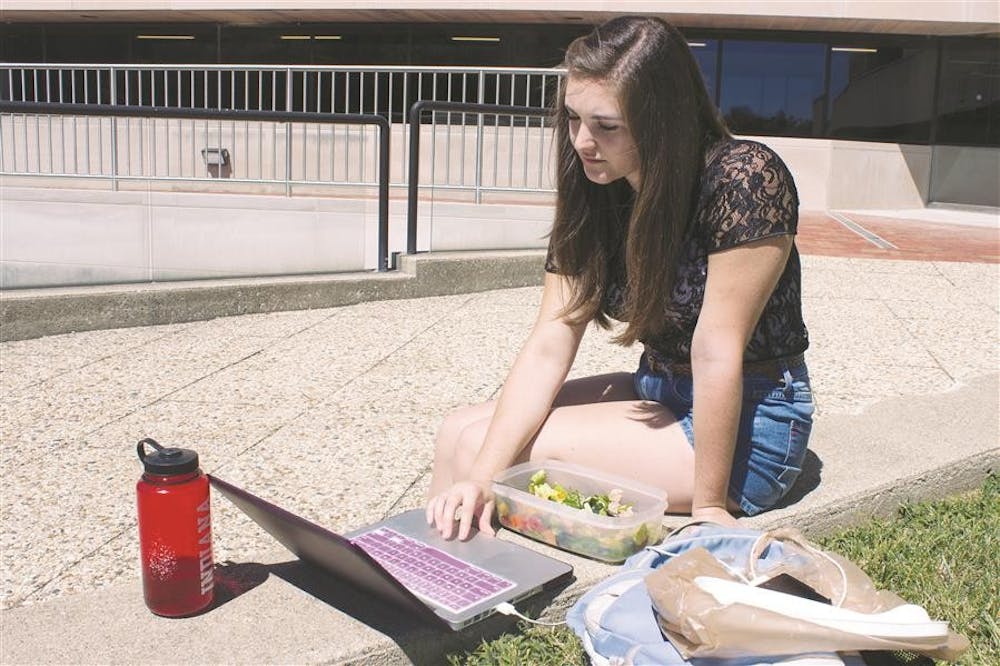IU senior Audrey Chambers was 5-foot-6 and weighed 97 pounds when she decided to get help for her eating disorder freshman year.
She weighed 21 pounds less than the recommended weight for her height.
The IU Health Center diagnosed her with anorexia. She began treatment and began gaining weight, but the Health Center said she wasn’t gaining it fast enough.
Chambers and her family received an ultimatum in the form of a letter from the Health Center in Nov., only a few months after she started treatment.
If she didn’t gain a certain amount of weight by the time she came back from winter break, she wouldn’t be able to return to school, the letter stated.
“They had explained to me that if they know a student is as physically unwell as I was, and they allow that student to continue on campus not making progress towards becoming healthier, then they could be facing a liability issue,” Chambers said.
Chambers’ eating disorder, anorexia nervosa, is characterized by fear of gaining weight and poor eating habits.
As many as 24 million people suffer from an eating disorder in the U.S., according to the National Association of Anorexia Nervosa and Associated Disorders website. Only one in 10 people seeks treatment.
“I was really scared, alone, and having trouble sleeping because my bones were protruding so much,” Chambers said.
Chambers was assigned to a physician, a dietician and a therapist from the IU Health Center’s Counseling and Psychological Services.
Dr. Nancy Stockton, director of CAPS, said CAPS doesn’t usually give out ultimatums to students.
“With (student’s parents’) permission, we strongly recommend intensive treatment or have the student leave the University to thrive,” Dr. Stockton said. “If students are near starvation, and anorexia taken over, they’re angry, but often what happens is when they get better.”
Chambers said she believed she was “never good enough for anybody,” which was the root of her illness.
Stockton said CAPS works with students who “want to be there and who want treatment.”
“Through CAPS and numerous people from the University, we try to get external support to help bolster the student to combat the anorexic thinking,” Stockton said.
After receiving the letter from CAPS, Chambers stopped going to the Health Center for counseling sessions and started seeking help off-campus.
She sees a physician and dietician occasionally, but is still wary, she said.
“The ultimatum absolutely did not help me,” Chambers said. “It scared me.”
Jessica Setnick, dietician and founder of International Federation of Eating Disorder Dieticians, said the decision to give an ultimatum was probably an indicator of how strong and serious the eating disorder was.
“I assume that it was a way to motivate the student to get treatment,” Setnick said.
In response to the letter, Chambers said she felt her mental health should not be a threat to her education.
“I just really dislike how the Health Center threatens people,” she said. “I do understand why they do what they do, but that doesn’t mean I like it.”
Chambers is now recovering and is getting good grades, she said.
She is also involved in the National Eating Disorder Association as a navigator, helping an anonymous pen-pal with the individual’s eating disorder via email.
“Helping people with recovery is one of the best things I’ve done in my life,” Chambers said.
Chambers said she hopes CAPS can find a better approach to helping students.
“I’m a very strong advocate for eating disorder recovery, and the last thing I want to do is turn people away from a big source of help and support on campus,” she said. “I would really like to see them find a less threatening, more supportive way of helping people.”
Too thin to stay

Get stories like this in your inbox
Subscribe



